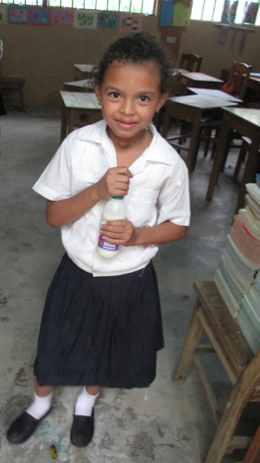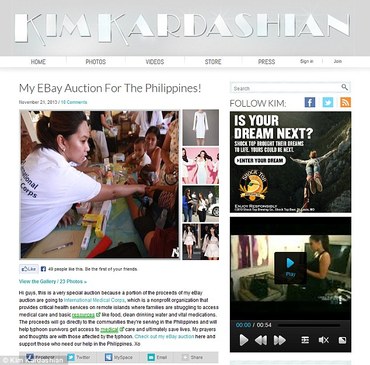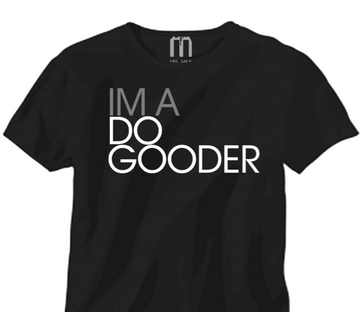On my latest trip out in the field, doing project research in Honduras, I was sitting in a classroom in the middle of a jungle. The teacher signaled it was time for a break, and a blur of little feet flew past me. One set of feet immediately caught my eye: I recognized the blue and white logo, with the brand spelled out: TOMS. It was my first time seeing a child in need, so to speak, wearing the other pair of TOMS shoes. She was the only girl wearing a pair in the whole school, and after a bit of asking around, I found out her family had actually purchased them at a local market. She was not part of the original intended target of the shoe.
This took me back to the time when I was researching to apply for my own NGO, Kitechild, as a giving partner for the shoes. At that time (2011), even though we had a good network of homes with many orphan children who needed shoes, we would not qualify because we had to be able to give upwards of 5,000 shoes at a time, and much of the financial burden of storing and tracking the shoes would end up as our burden, not TOMS. Much criticism has been published regarding the TOMS model and the efficiency of their mission, but I can't deny that their brilliant marketing has fooled many of us into thinking we are using our purchasing power for good. As the last weekend for holiday shopping is coming up, this is a perfect time to educate ourselves on gifts that really give back.
I returned from Honduras to the U.S. just as the commercialized and spirited holiday season was beginning. The holidays (accounting for 35 percent of retailers' annual sales) are a time for giving, and a product like TOMS shoes is effectively sold through 'feel-good marketing.' We're spending but with the promise that we are also doing some form of good in the world, leaving us feeling warm and tingly inside. I don't want to just single out TOMS; there are other companies who heavily market their product on the premise of social good, yet do little in the realm of actual giveback, which you may not even notice amongst the holiday frenzy. Let's say a typical day of holiday shopping day goes something like this:
After spending 45 minutes raising your blood pressure fighting for a parking spot at the mall, you walk into a high end department store and see a colorful display of TOMS shoes. You purchase a pair as a gift, receive a little postcard with a smiling kid from Africa, and you feel happy you're spreading love. Its time for your afternoon chai latte which will help you face the crowds and grumpy sales associates, so you head to Starbucks and see the Ethos water by the counter. You buy one, since every purchase provides clean water to poor people in third-world countries. Now you're feeling like Mother Teresa. Later at home, you're scanning your favorite blogs and see that Kim Kardashian is having a huge sale of her clothes on eBay. You don't really need that pair of Yves Saint Laurent gloves, but you did buy a bunch of presents for everyone else, and then you notice the sale is benefiting the Philippine Typhoon victims. Well, this purchase would totally elevate you to Pope status, and you don't even hesitate to click.
We've already touched on TOMS' shortfalls, but lets break down everything else: Ethos water donates 5 cents of every bottle to clean water projects in Africa. The average market price for a bottle of their water is $1.70. Now, to me, that's an expensive bottle of water, up there with fancy stuff like Evian and Voss. And at that price point, only five cents is being given back? Aside from the irony that you are buying bottled water to give clean water in developing countries, the Starbucks where you find Ethos can give you a perfectly clean glass of water for free. Instead, why not donate the $1.70 to an awesome organization such as charity:water or water.org. Kim Kardashian's sale? If you read the fine print, only 10 percent of the sale is benefiting the Typhoon victims. 90 percent is going back to Miss Kardashian, even though the whole premise/marketing around the sale was for the Philippines. By contrast, take the Beckhams who donated 20 boxes of clothes to be auctioned at the British Red Cross for aid in the Philippines, while not expecting one cent in return. Publicity stunt or not, employing social cause marketing to make money is what I call charity profiteering, and what many of these companies/individuals are guilty of.
Roozt is another company I've worked with that employs a great premise, but not so great execution. They are an online marketplace for socially conscious brands, meaning you can buy yoga pants, sunglasses, water bottles, purses, etc, from companies who's mission is to give back to others. My organization listed our line of handmade bracelets on the site, and were excited about the potential exposure the company could give us. But that exposure came at a cost -- a 25 percent cut from each sale had to be given to Roozt, as a listing fee. And if we wanted guaranteed exposure in weekly newsletters and other marketing, we had to offer our customers an extra 10 percent discount, meaning that Roozt's 25 percent margin would stay the same, while our profits would be cut an extra 10 percent. A 25 percent listing fee is pretty high when you compare it to other performance based sites, such as eBay, which has 12-15 percent fees. If Roozt is solely selling socially conscious products from which the profits are meant to help others, why make the organizations and companies who list give up a substantial amount of their profit?
Coming from an NGO background, where transparency is king, its upsetting to see this double standard. How is it OK that for-profit entities can slap photos of vulnerable children on their products and churn profits with the majority allocated back to the company and not the cause? Why aren't for-profit companies held to higher standards of transparency, if they are making money off social good? The way I see it, there are companies that need poverty to exist in order to make profit. They capitalize on the conscious consumer, on the large number of millennials connected with the world through tweets and photos. People are aware, and they want to do more. If a product's selling point is based completely on the social cause, as opposed to the product itself, attention should be paid to how that profit is being used. I know what the naysayers will say: "isn't it better for a company to donate at all? They don't have to donate, but they are doing something." Yes, its great that there are for-profit companies giving back. In fact, there are many companies that do so on the side and contribute just as much or even more, yet they aren't pulling sympathies from the consumer to sell their product. Companies such as Patagonia and their 1 percent for the planet, give substantial contributions without needing to base their whole marketing pitch on 'saving the world.'
Its up to us to see through the marketing tactics tugging at our wallets and heartstrings, but I still think that there should be some level of transparency for those companies that solely base the premise of their product on social good. It can be done right -- take Sevenly for example, an online company selling t-shirts which support effective NGO's and charities. $7 out of their $22 shirts goes back to the charity of the week -- plus you get to wear a cool shirt that shows your support. As consumers, its OK to want to buy something that shows others we are 'good people', so to speak. I believe its an inherent part of our nature. Giving makes us feel good and we also want to show others and maybe even inspire others to give by wearing a product tied to a social cause. That is the beauty of social enterprise, but all I'm asking is that you do your research wisely and support those companies that are in it for the cause, not the money.


